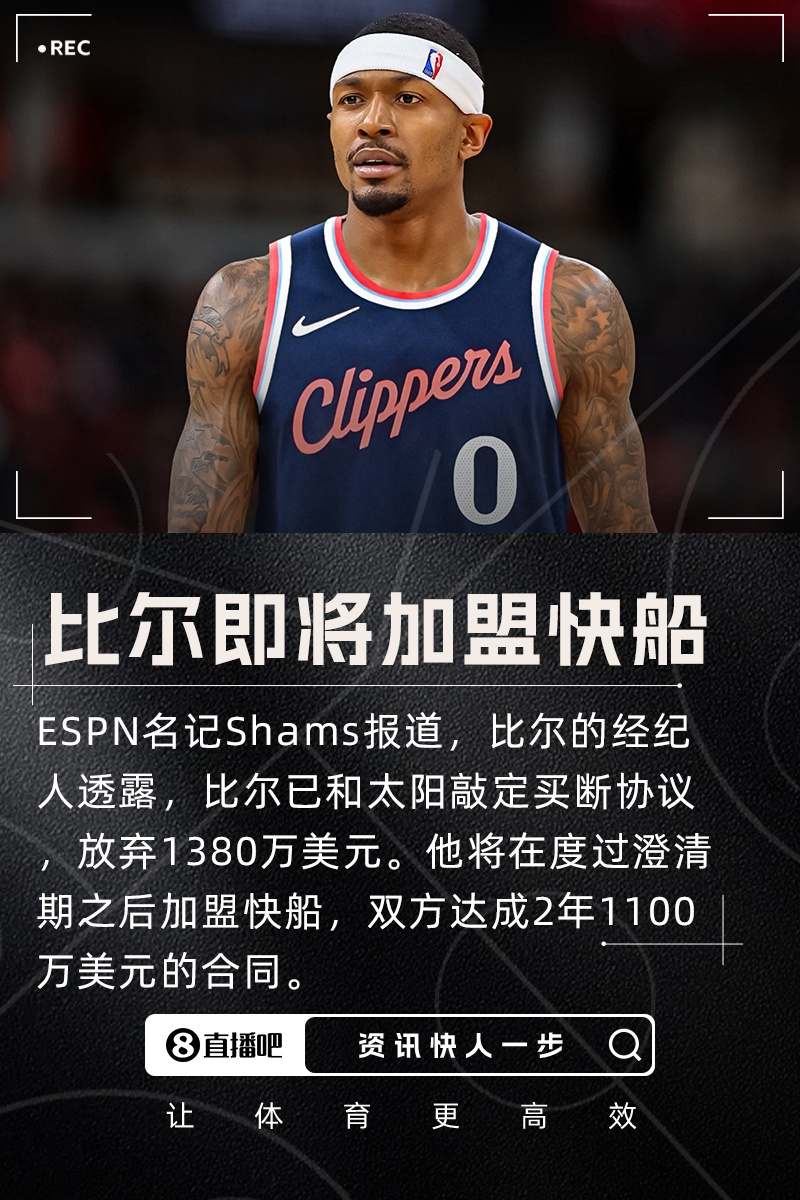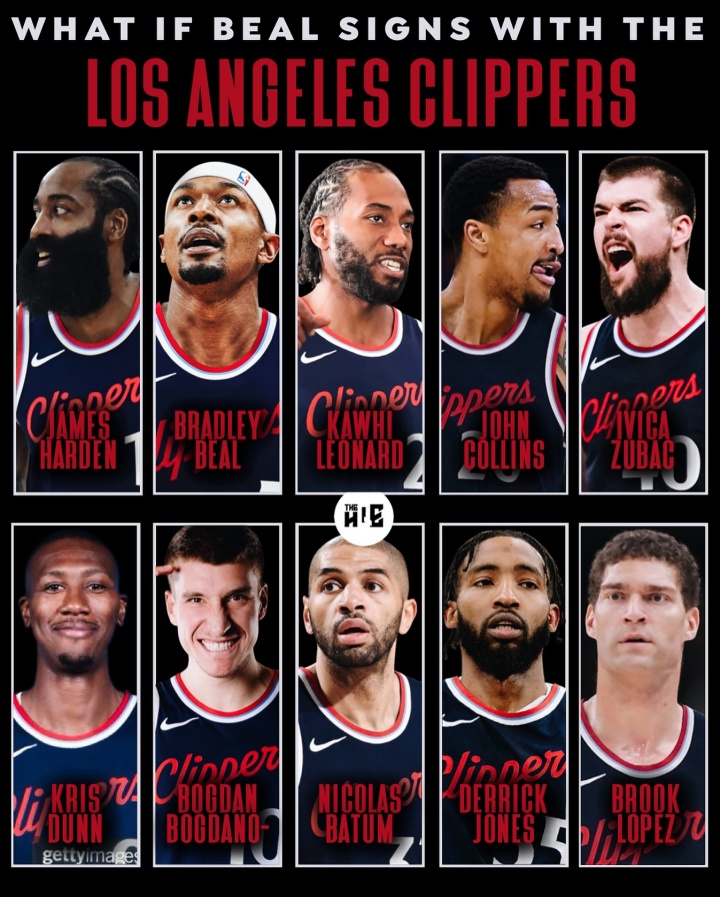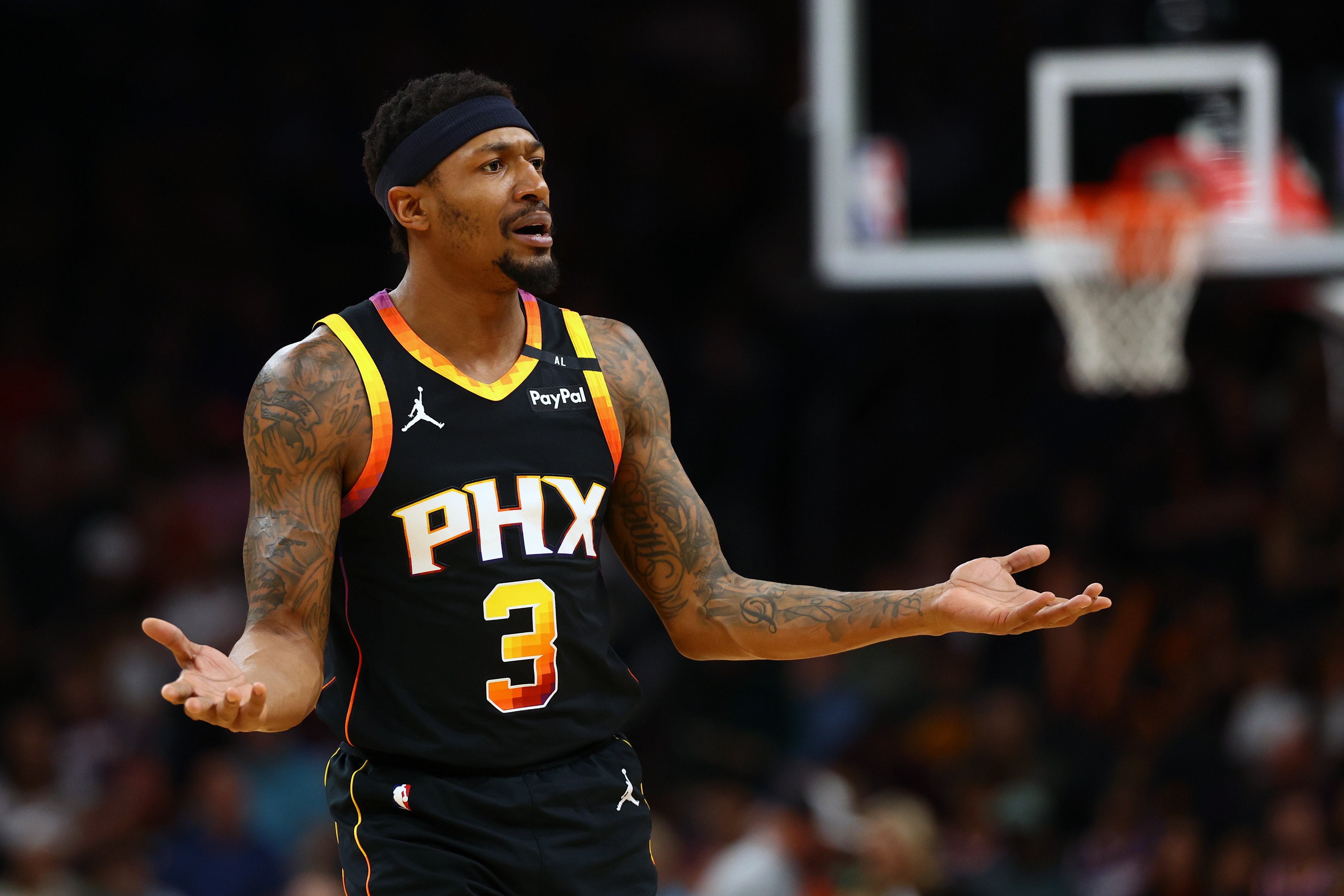
(The original article was published on July 17, and the author is Kevin Pelton of ESPN website. The content of the article does not represent the translator's opinion)
Bill agreed to reach a buyout agreement with the Suns, and then (after the clarification period) joined the Clippers with a two-year, $11 million contract.
Clippers Rating: B+
Clippers have finally completed the second step we are looking forward to. Last week, they traded starting shooting guard Norman Powell to the Miami Heat in exchange for forward/center John Collins.
With the Clippers' partner with James Harden in the backcourt, Bill will obviously become his ideal place to go once he reaches a buyout agreement with the Phoenix Suns.
Last season, Powell performed better than Bill. Although Bill was second in the league in scoring in the 2020-21 season, he transformed into a support role at the Phoenix Suns. By contrast, Powell showed more efficient performance with higher usage rates. It is worth mentioning that Powell, who just passed the best season of his career, is actually only one month older than Bill.

Nevertheless, I understand why the Clippers prefer Bill and Collins to Powell and other players who might sign with the remaining full middle class exception, even if it means they need to pay a second round pick (given to the Utah Jazz in the trade).
Although Bill is no longer an All-Star player, his skills are still very practical. He was a productive three-point shooter while playing for the Washington Wizards, and in two seasons with the Suns, he shot 41% from three-pointers. As his role on the offensive end diminishes, Bill devotes more energy to creating opportunities and defense for his teammates, two things that are very important for the Clippers.
Specifically, Bill's most important contribution to the Clippers seemed to be co-leading the backcourt of the second team with Bogdan Bogdanovic when Harden was resting. Currently, the Clippers don’t have a traditional point guard behind Harden – although Chris Paul is still a full free agent – and the team seems to be planning to fill the role with Bill and Bogdanovic in rotation.
Although Bill's idea as starting point guard lost his glory in Phoenix, he and Bogdanovic should be able to provide enough organizational capabilities for the second team.
The Clippers are expected to achieve this by staggering Bill and Harden's playing time at the start of the season, although they will start together in the backcourt. Given that Bill was upset about being a substitute in the second half of last season, it was hard to imagine that he would be willing to return to the bench again.

As the playoffs approach, assuming the Clippers can gain a spot in the highly competitive Western Conference, Tyron Lu may face more complex decisions when choosing a starter. Collins' frontcourt partner with Zubac may be the best choice for the Clippers, but this will make Leonard the team's main wing defender, and the Clippers may want to reduce the burden on his defensive end as much as possible to keep him alive on the offense. In this case, Chris Dunn or Derek Jones Jr., may be more suitable for starting wing than Bill.
At present, this is a good question. The Clippers have to go through 82 regular season games, and the depth of the team will become very important considering Bill, who played more than 53 times in a season last time or was in a shrinking 2020-21 season, and Leonard often missed games.
signed Bill with maximum salary, especially given his j-trade veto, which is a net negative for the Suns. While the Clippers are now getting him for a completely different price ($11 million for 2 years), Bill's player option gives him the opportunity to compensate him for lost salary through a buyout, and may even make more if he performs well this season.
It is worth discussing how Phoenix Suns benefited from this deal. To some extent, the Suns may benefit from an NBA rule that limits the dead money teams can bear after completing layoffs and deferred payments. This means Bill must agree to reduce his guaranteed salary by at least $14 million (13.8 million) to legalize this type of buyout, setting the bottom line for negotiations.
According to ESPN's Bobby Marks, if the Suns agree to extend Bill's contract payment, they will bear Bill's salary within five years. However, the benefit of doing so may be to avoid the issue of luxury taxes altogether.
Until we see how Phoenix responds, I will not see this as a sign that boss Ishbiya has contracted in spending, like the steps Prokhorov took after the Brooklyn Nets traded Kevin Garnett and Paul Pierce failed.
After all, the spending limit on teams exceeding the second luxury tax line in the new labor agreement means that the Suns have a basketball benefit to reducing the total salary by delaying paying Bills. In fact, they can now use the $5.7 million middle class exception, although it is unclear whether any free agents are willing to accept this condition rather than choose a veteran’s base salary.
Reducing the team's total salary to the second-large offline will allow the Phoenix Suns to combine their salary in the deal and means that if they lose restricted free agent Mark Williams, or he renews with a qualification offer, the Suns will be able to use their full middle class special next summer.
I am still not sure if extending Bill's contract payment will be better for the Suns in long-term game performance than for him to fulfill the remaining two seasons. But considering that his time at Phoenix seems to be unpleasant for both sides, I understand the team’s desire to say goodbye.
Original text: Kevin Pelton
Compiled: selu
source:ty so 7m vn